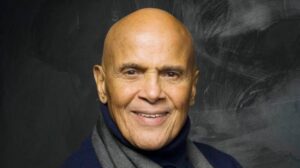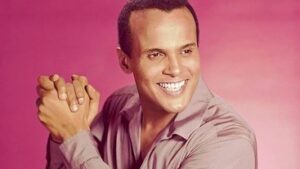Harry Belafonte, the singer, actor and civil rights activist who broke racial barriers, has died at the age of 96.
In addition to performing international hits like Day-O (The Banana Boat Song), Belafonte has received a Tony Award for his acting and appeared in several feature films. Belafonte has spent his life fighting for various causes.
He funded several initiatives in the 1960s to bring civil rights to black Americans; campaign against poverty, apartheid and AIDS in Africa; and support for left-wing politicians like Fidel Castro in Cuba and Hugo Chávez in Venezuela.

His spokesman told the New York Times the cause of death was congestive heart failure. Personalities such as Joe Biden, rappers Ice Cube and Mia Farrow paid tribute to Belafonte. The US President said Belafonte was “a pioneering American who used his talent and voice to help redeem the soul of our nation”.
Also, read; Egypt, Morocco, Ghana, and South Africa Rank among the top emerging markets for foreign investment
Born in 1927 in working-class Harlem, New York, Belafonte spent eight years of his childhood in his parents’ impoverished homeland of Jamaica.
He returned to New York for high school but suffered from dyslexia and dropped out of school in his early teens. He worked odd jobs in markets and in the city’s garment district, then in March 1944 at the age of 17 he joined the US Navy and worked as a munitions loader on a base in New Jersey.
After the war ended, he worked as a janitor’s assistant, but aspired to be an actor, having attended plays at New York’s American Negro Theater (along with aspiring actor Sidney Poitier).
He took acting lessons – his colleagues included Marlon Brando and Walter Matthau – which he paid for by singing pop and jazz at New York club parties, where he was supported by groups whose members included Miles Davis and Charlie Parker.

In 1954 he released his first album, a collection of traditional folk songs. His second album, Belafonte, was the first No. 1 album on the US Billboard New Albums chart in March 1956, but his success was surpassed the following year by his third album, Calypso, which features songs from his Jamaican heritage.
It brought the laid-back style of calypso to many Americans for the first time and was the first album to sell over a million copies in the United States.
